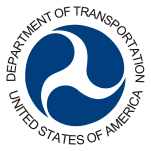Investigations
Justice Department Announces Criminal Charge Against Toyota Motor Corporation and Deferred Prosecution Agreement with $1.2 Billion Financial Penalty
Summary
On March 19, 2014, U.S. Attorney General Eric Holder, U.S. Secretary of Transportation Anthony Foxx, U.S. Attorney for the Southern District of New York Preet Bharara, DOT Inspector General Calvin L. Scovel III, National Highway Traffic Safety Administration Acting Administrator David Friedman and FBI Deputy Assistant Director Joe Campbell announced a criminal wire fraud charge against Toyota Motor Corporation (Toyota) in connection with its role in providing misleading information to the National Highway Traffic Safety Administration (NHTSA) about safety issues in Toyota and Lexus vehicles. In conjunction with this charge, the Department of Justice (DOJ) announced a deferred prosecution agreement with Toyota under which the company admits that it misled U.S. consumers by concealing and making deceptive statements about two safety issues affecting its vehicles, each of which caused a type of unintended acceleration. The agreement requires Toyota to pay a $1.2 billion financial penalty—the largest penalty of its kind ever imposed on an automotive company, and imposes on Toyota an independent monitor to review and assess policies, practices and procedures relating to Toyota’s safety-related public statements and reporting obligations.
The investigation disclosed that in the fall of 2009, Toyota deceived consumers and NHTSA by claiming that it had “addressed” the “root cause” of unintended acceleration in its vehicles through a limited safety recall of eight models for floor-mat entrapment, a dangerous condition in which an improperly secured or incompatible all-weather floor mat can “trap” a depressed gas pedal causing the car to accelerate to a high speed. However, at the time the statements were made, Toyota knew that it had not recalled some cars with design features that made them just as susceptible to floor-mat entrapment as some of the recalled cars. Second, only weeks before these statements were made, Toyota had taken steps to hide from NHTSA another type of unintended acceleration in its vehicles, separate and apart from floor-mat entrapment: a problem with accelerators getting stuck at partially depressed levels, known as “sticky pedal.”
We conducted the investigation jointly with the DOJ Securities and Commodities Fraud Task Force and the Federal Bureau of Investigation.
More information on the DOJ press release, deferred prosecution agreement, criminal charges and statement of facts are available on the DOJ web site.

 U.S. DOJ Press Release
U.S. DOJ Press Release